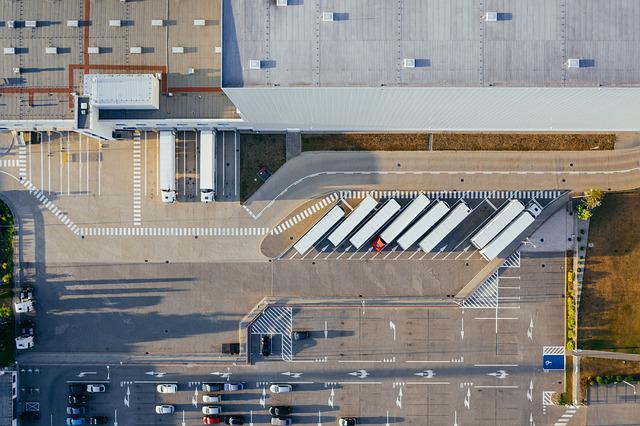E-Commerce Unicorns 2022: Fabric Builds Headless Commerce to Cater to e-commerce Growth

According to a recent report, the global e-commerce fulfillment services market size is expected to grow at 9.5% CAGR from $86.5 billion in 2021 through 2030. The continued adoption of e-commerce is resulting in the increase in the number of online buyers, especially in emerging economies. While Amazon remains the giant in the space, smaller companies are focusing on improving their tech stack to offer advanced fulfillment capabilities to other organizations.
Fabric’s Offerings
Founded in 2016 by Ryan Bartley and Shiv Agarwal, Seattle-based Fabric is an e-commerce tech platform that helps customers go online with ease and speed. The platform has been created to drive e-commerce adoption among mid-market customers. It provides mid-market brands the tools needed to keep up with giants like Amazon even when they don’t have the in-house technical expertise or capability to build out stable e-commerce systems. It relies on software, APIs, and other behind-the-scenes technology used by retailers and business-to-business brands to create an open and modular design that can provide many aspects of online commerce, including pricing/promotion, inventory management, digital storefronts, and payments/checkout.
Fabric envisions itself as the “AWS for commerce”. It wants to provide the technology infrastructure for retailers to help fuel their ecommerce solutions. Its approach is known in the industry as “headless” commerce, as it separates back-end technology from front-end experiences to give brands the flexibility to build out their own systems and customer experiences. Fabric offers headless commerce as a service to support merchandisers, operators, and developers in the ability to connect with customers in new and improved ways.
The company has built advanced robotics solution to differentiate itself from its competitors. These robots can be deployed in customers’ warehouses to automate the process of selecting, sorting, storing and packing items. Additionally, it has also invested in “micro-fulfillment” centers and last-mile operations. Micro-fulfillment refers to providing space to multiple tenants within a bigger warehouse where Fabric deploys robots to. These larger warehouses are not necessarily owned by Fabric itself. The micro-fulfillment center involves robots and humans at scanning and controlling stations, and is able to offer services such as one-hour deliveries.
It has a few well-known brands as its customers as well, including names like Walmart, Chico’s clothing, McDonald’s, TriMark restaurant supply, L’azurde jewelry, and the sustainable consumer goods venture, The Honest Company.
Fabric competes with several other startups who are trying to improve the technology within the fulfillment process. These players include names like ShipBob, Byrd, and parcelLab.Fabric believes that its robotics offering and the continuous drive to innovate within the sector will help it stand apart from these players.
Fabric’s Financials
Fabric does not disclose its financials at all. The company has raised $293.5 million in four rounds of funding led by Sierra Ventures, Forerunner Ventures, Redpoint, Norwest Venture Partners, Glynn Capital Management, Stripes, SoftBank Vision Fund, and Greycroft. Its most recent round was held in February 2022 where it raised $140 million at a valuation of $1.5 billion. It plans to use these funds to continue to drive geographic expansion. It is focusing on Europe, the Middle East and Africa for its next round of growth by adapting its technology to support new languages and currencies.
Chicago-based ShipBob is also privately held and is estimated to deliver revenues of $127 million. It raised a funding round last year that valued it at over $1 billion as well. With Fabric’s financial information not widely known, it is difficult to comment on its valuation.
Photo Credit: marcinjozwiak from Pixabay
This segment is a part in the series : E-Commerce Unicorns 2022
. Fabric Builds Headless Commerce to Cater to e-commerce Growth
. Oddity Leverages AI to Guarantee the Right Foundation Color
. Jokr Faces Troubles and Shutters US Operations
. Motorway and Flink Meet Pandemic Driven Demands through E-Commerce
. Lofty Valuations for Profitable D2C E-Commerce Players Heyday and Vuori
. Whatnot Builds a Flywheel for Influencer-Driven E-Commerce
. RIDI Looks to International Markets for Webcomics
. Olist and Merama Target $580B LatAm E-Commerce Market
. Getir Struggles as Valuations and Growth Rates Slow Down
Featured Videos
Can 1M/1M Help Me Raise Money?
How Does 1M/1M Democratize Entrepreneurship Education?
How Does 1M/1M Democratize Management Consulting?
When Is The Right Time To Join 1M/1M?
Can 1M/1M Help Me With Business Development?
Can 1M/1M Help Me With Market Sizing?
Can 1M/1M Help Me Validate My Product?
Will I Have Private 1-on-1 Sessions In 1M/1M?
How Does 1M/1M Help Entrepreneurs Connect With Silicon Valley?
Mentoring or Consulting?
Why Does 1M/1M Charge $1000 a Year?
Why Does 1M/1M Partner With Local Organizations?
Why Don\’t Mentoring Networks Work?
Why Is It Important To Study With 1M/1M Now?
Dan Stewart Story
Vikrant Mathur Story
